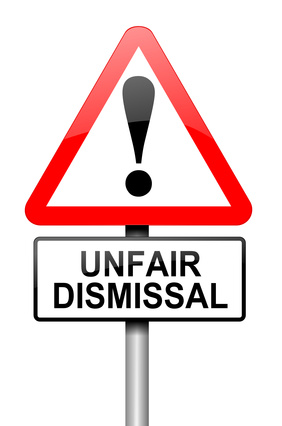When you win your unfair dismissal case, the tribunal don’t just put their finger in the air and pick an amount to pay you – there are rules they have to follow.

Here are the most likely outcomes that you can expect:
Basic award
First, you will be paid a basic award. The amount varies depending on your age and length of service:
- 5 weeks’ pay for each complete year of service after reaching age 41
- 1 week’s pay for each complete year of service between age 22 and 40 inclusive
- 5 week’s pay for each complete year of service under age 22
The current maximum is 20 years’ service, working backwards from the effective date of termination.
Point to note: If you have already received a statutory redundancy payment, it will be taken off the amount of the basic award.
Compensation
You may receive compensation in addition to the basic award.
The compensation amount may include contractual pay and benefits that you’ve missed out on, any expenses you incurred as a result of the dismissal, plus a sum to cover loss of your statutory rights.
There is a cap on the amount of the award which is currently £78,962 in GB and £79,100. This is reviewed annually.
Compensation might be reduced in these situations:
- If you won your unfair dismissal claim because your employer didn’t follow the correct procedure, but you would have been dismissed anyway (up to 100% reduction)
- If your behaviour contributed to your dismissal (most common in misconduct dismissals)
Point to note: You have a duty to minimise your losses, so, for example, you must be able to prove to the tribunal that you have been trying to find alternative employment.
Getting your job back
In about 1% of unfair dismissal cases, the tribunal will order your employer to give you back your old job on the same terms and conditions and with no loss of continuity of employment (reinstatement) or to give you a similar job (re-engagement).
If your employer fails to comply with the order, they may have to pay additional compensation of 26 to 52 weeks’ pay (subject to the statutory maximum).
Sometimes, employees make a claim for reinstatement or re-engagement as a tactical move, knowing that they will receive additional compensation if their employer refuses to comply.
Point to note: Reinstatement or re-engagement will not be ordered if there is no job for you to return to, or when trust and confidence has broken down between you and your employer.
Need help?
For a FREE assessment of your claim, call 0808 168 7288 or fill in the contact form on the top right of this page.
We have already helped thousands of people to win millions of pounds in compensation.
You have a choice of ways to pay, including ‘no win, no fee’.
We will also discuss the best methods of funding your case and seek to reach a solution that best suits your needs. This can involve a “no-win, no-fee” agreement if appropriate.
